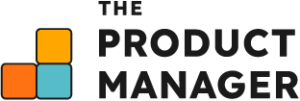There is plenty of confusion in the product management world in regards to what a technical product manager (TPM) is when compared to a product manager.
Depending on the company, a technical product manager role can vary in terms of day-to-day activities, big picture focus, required skills, and responsibilities. The technical background and skills that organizations are looking for can vary as well.
That said, best practices have started to emerge when it comes to what companies look for in technical product managers.
In this article, we’ll look at the differences between a product manager and a technical product manager, what kind of technical skills you will need as a technical product manager, what kind of companies hire technical product managers, and other product manager specializations to be aware of.
Jump to a section here:
- What Does A Technical Product Manager Do?
- Technical Product Manager Vs Product Manager: Key Differences
- At What Point Does A Product Manager Turn Into A TPM?
- Other Product Management Specializations Beyond TPM
What Does A Technical Product Manager Do?
While a technical product manager, sometimes also called a data product manager, will have many of the same job responsibilities as a product manager, what differs in the TPM role is that they focus more on the technical side of products and are required to have expertise in fields or industries such as software development, engineering, IT, and a wide variety of others.
Now, to be clear, this doesn’t mean a technical PM is spending their days coding away. However, it is quite common for technical product managers to come from a computer science, software development, or engineering based role. It’s also possible that they transferred from the engineering team to the product team.
Technical PMs make use of their technical expertise to work closely with the development team. They are less focused on the customer needs and instead work with the engineering team on product prioritization, product strategy, product lifecycle, and product development, making use of their technical knowledge of the product.
The technical background of a technical product manager can help with:
- Prioritizing what to work on from the backlog,
- Developing user stories and business requirements,
- Improving coordination over cross-functional teams
That said, you should be aware that a technical product manager’s job is still focused on the product management side of things. While customer needs are less of a technical product manager’s focus as compared to a product manager, TPMs still are part of the management team and need to keep the customer in mind.
We’ve written about the responsibilities of product managers specifically elsewhere, including here and here.
Technical Product Manager Vs Product Manager: Key Differences
Here’s a summary of the key differences I cover below. It’s important to note that there is overlap between these roles, and this table is meant to highlight the differences. It’s not an exhaustive table. So, for example, we didn’t list marketing teams as a team that TPMs work with, although they do in a lot of cases.
| Product Manager | Technical Product Manager | |
| Salary | $96,522 per year (average) | $100,074 per year (average) |
| Background |
|
|
| Core Skills |
|
|
| Big Picture Focus | The “Why” of a product | The “How” of a product |
| Teams They Work Closely With |
|
|
Let’s do a more point-by-point comparison on the difference between a technical product manager and a product manager.
Salary
Per our 2023 average product manager salary and career guide, a product manager earns on average $96,522/year, while a technical product manager earns on average $100,074/year.
This should not come as a surprise, as technical product managers have some technical skills and expertise in their toolbelt that product managers do not.
Background
Whereas a product manager might have a more general background, such as a business, marketing, or UX, a technical product manager is required to have a technical background such as a degree in software development or engineering. They are those who have spent some time in their career coding, engineering software, or working on the technical side of projects. It’s worth noting that product managers may also have software development or engineering backgrounds in cases.
Core Skills
Depending on the company, this can vary, but a TPM should have the following:
- Computer science, software development, and/or engineering knowledge. They know how to code and can talk technical with the engineering team.
- Experience in and an understanding of software development methodologies and development processes, like agile and knowledge of scrum.
- Ability to develop product roadmaps. Compared to a product manager who focuses more on the what and why of what goes on a product roadmap, product requirements, and product vision, a technical product manager will be focused on the implementation and the how.
- An understanding of APIs. How a product can communicate with other software is key for the success of the product—having knowledge of the inner workings of APIs will help make this a reality.
We’ve also written elsewhere about skills for product managers, and there is some overlap between required skills for each role. Generally, product managers also need to be well-versed in market research, UX best practices, critical thinking, problem-solving, and communication.
Big Picture Focus
If a product manager is focused more on the “why”, then a technical product manager will be focused more on the “how” in regards to the implementation of the product vision.
While a product manager will place most of their focus on the needs of the customer, a technical product manager will be focused on the product itself and the ins and outs of how it gets built.
Again, it’s not a one or none—it’s not as if a product manager doesn’t focus at all on how a product gets built, or as if a technical product manager doesn’t focus at all on customer needs. Depending on the organization size and how they define the role, one type of product manager may have laser-like focus on the customer needs, while another might have a balance between the two.
Teams They Work Closely With
A technical product manager is going to be spending most of their time with development teams. That said, it’s not as if they won’t be working with other teams that product managers tend to work with like user experience, marketing, sales, customer support—it’s just that their focus will be much more specialized on the technical teams.
At What Point Does A Product Manager Turn Into A TPM?
This will vary from company to company.
The technical product manager role doesn’t tend to pop up in smaller organizations. With a smaller product team, a startup isn’t that likely to have a technical product manager role. Instead, someone in a product management role will be more than enough to cover that ground.
A larger organization, however, will have more technical teams, a larger product team, and more stakeholders, so the role of a technical product manager will be more needed.
With a larger market share and new products constantly being built, having a specialized technical product manager role will help the product team from being spread too thin.
Related Read: 5 Methods To Land A Technical Product Manager Role (Without Experience)
Other Product Management Specializations Beyond TPM
The field of product management is constantly growing and further specializations and roles are popping up.
This goes beyond roles like the product owner, associate product manager, or product marketing manager.
Like the technical product manager role itself, these kinds of specializations are more likely to be seen at larger organizations compared to smaller ones. With more ground to cover and a larger amount of resources, larger companies can have product management roles that are more focused on one aspect.
Reforge has an excellent article on the growing specialization of product management. Below are a couple of examples that you should be aware of.
Growth Product Manager
A growth product manager, versus a traditional product manager, specializes on the customer experience in regards to acquisition of customers, converting free trials to paying customers, onboarding, and metrics around retention. On the business side, they are focused on how to monetize the product and create paying customers.
Platform Product Manager
Rather than managing products intended for external customers, the platform product manager specializes in overseeing internal products that streamline a company's operations. In other words, their users are their own company's team and the product's objectives are to improve the operations of their own organization.
Core Product Manager
With a laser focus on the user experience, a core product manager's focus will be on identifying user pain points, and creating a product strategy to help deal with these pain points.
Related Podcast: Using Product Strategy To Make Meaningful Impact (with Chanel Maddox from Crema)
What’s Next In Your PM Career?
Now that we’ve gone over the differences between a product manager and a technical product manager, the kinds of technical expertise a TPM should have, and other specializations for product management, what’s next for you?
If you have the technical knowledge to do so, see if it’s possible at your organization to switch your focus from a product manager to a technical product manager. Depending on the size of the company, this might be possible. However, if you’re at a smaller company like a startup, this type of role may not yet exist.
If you’re looking to learn more about product management, subscribe to The Product Manager newsletter.


